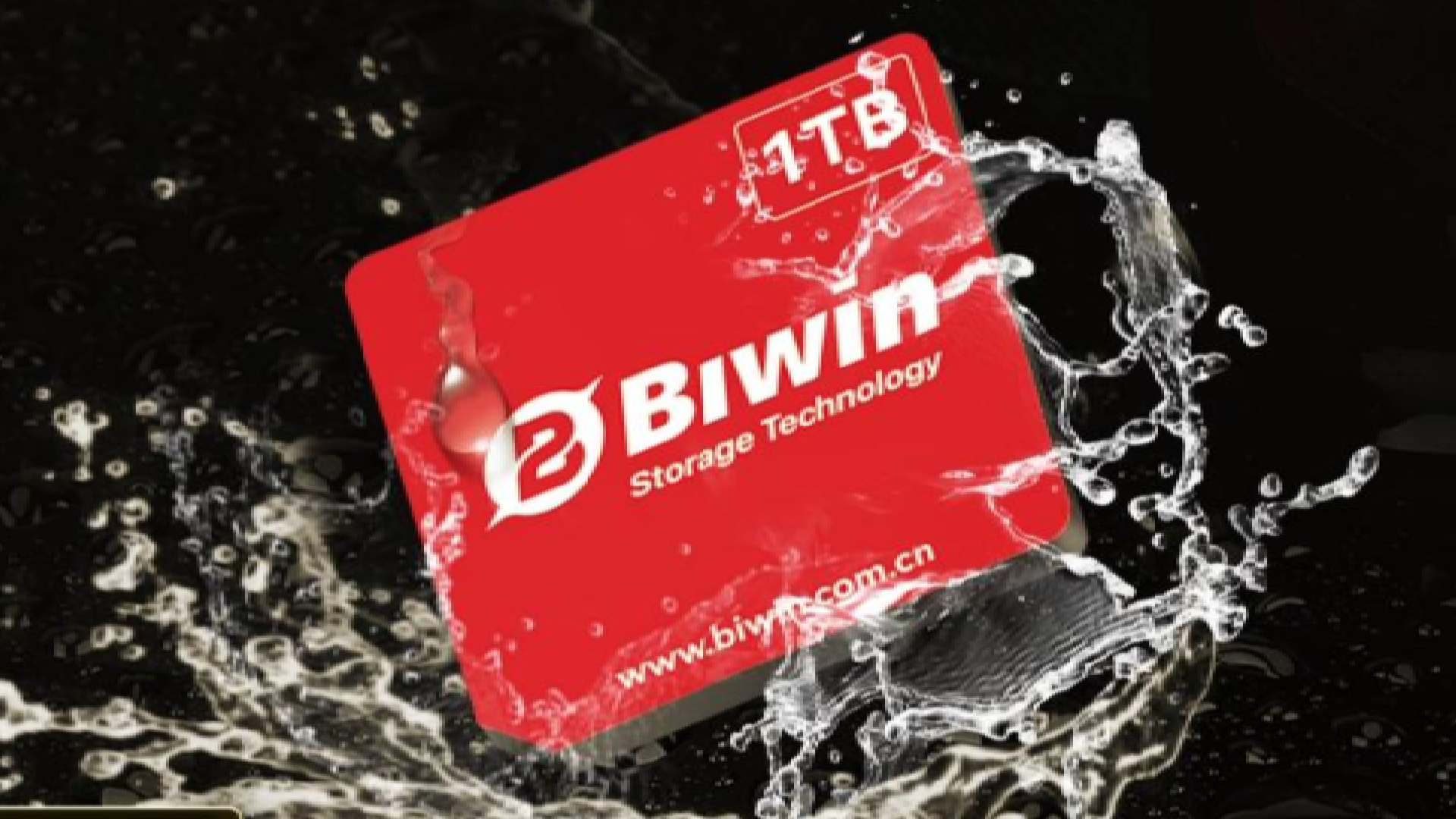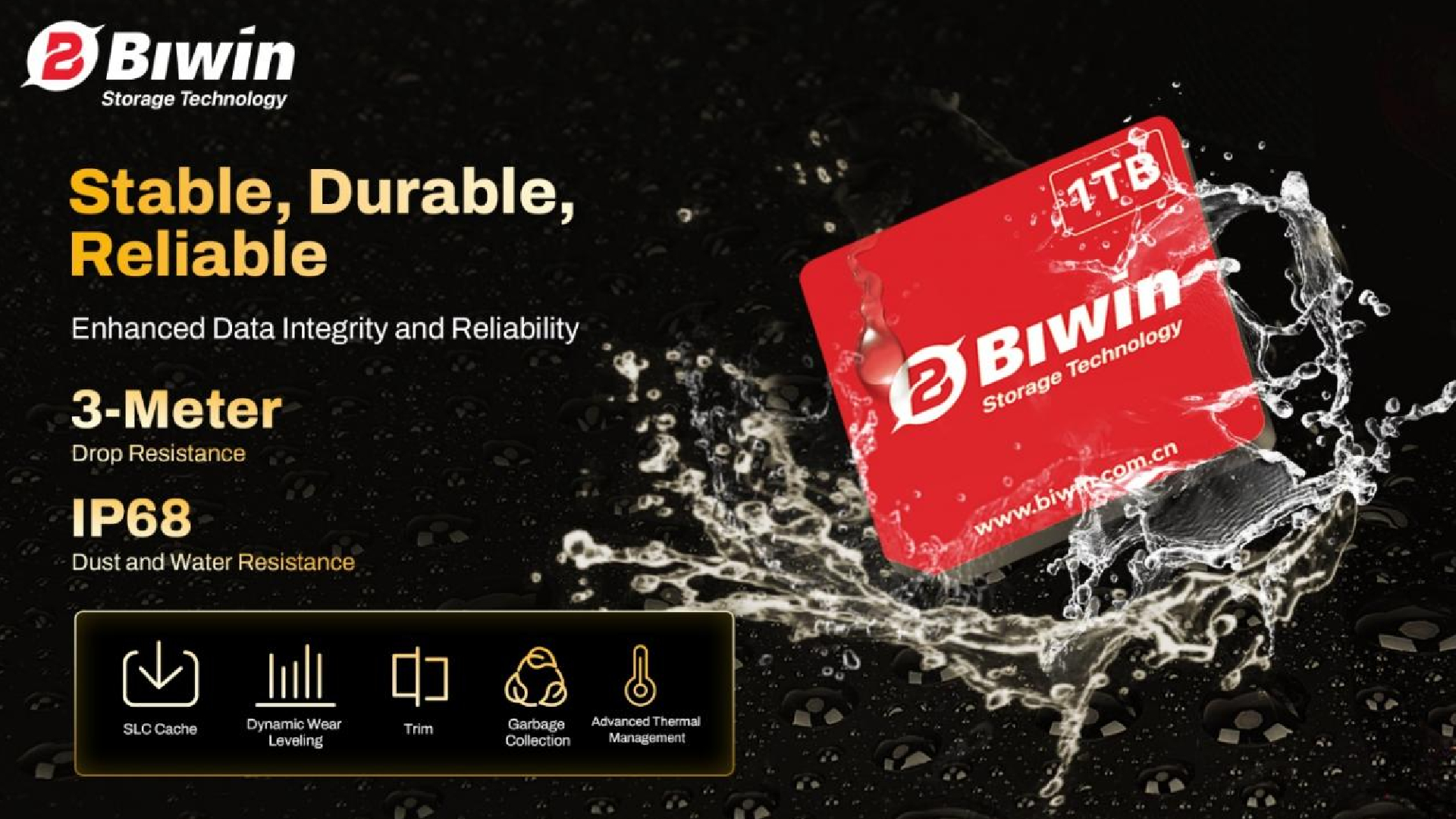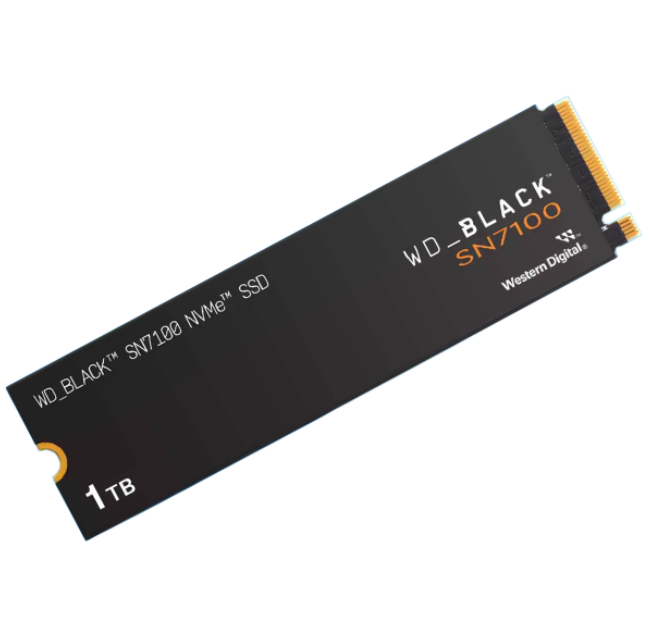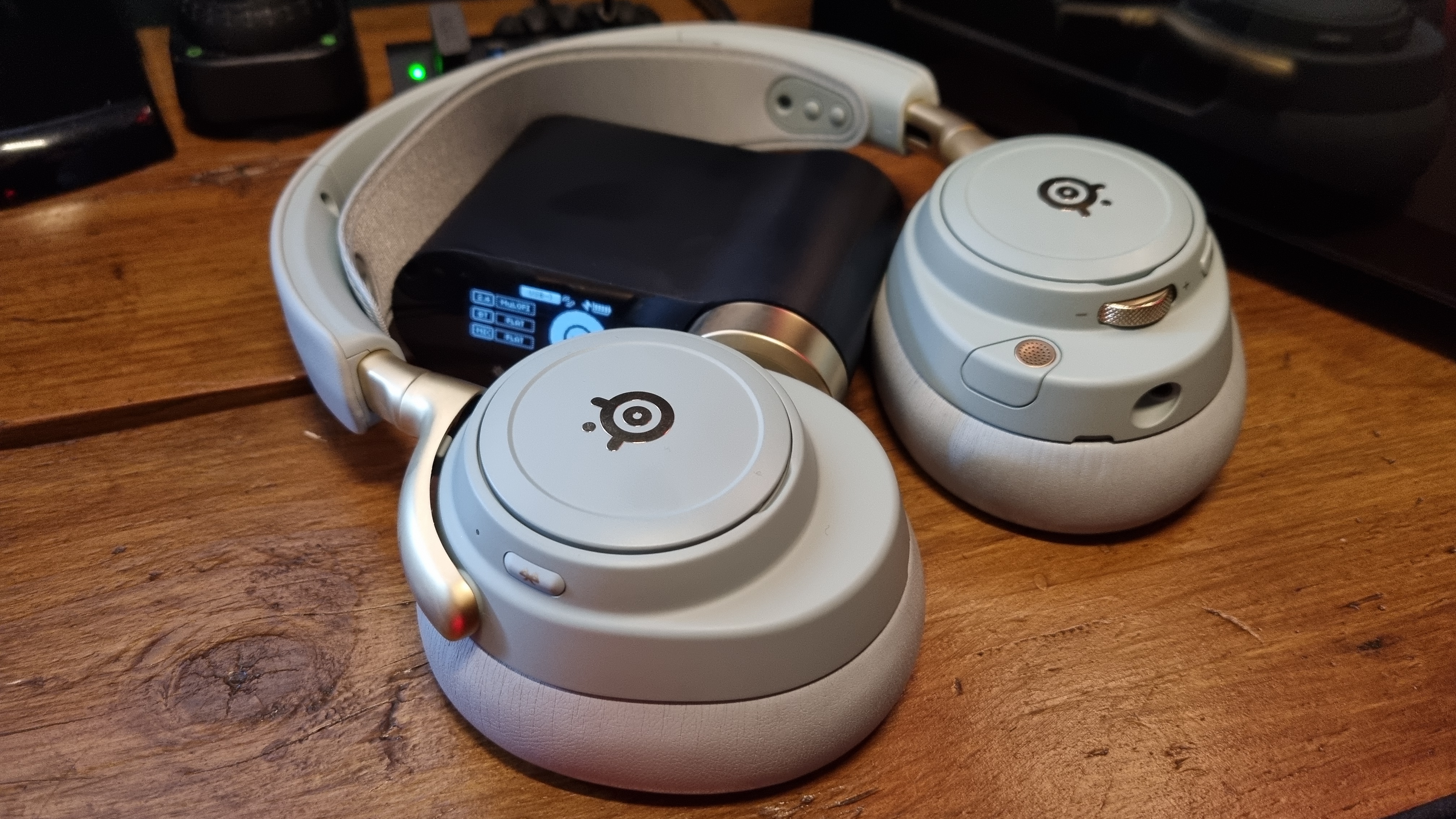Biwin has announced a teeny-tiny new type of SSD with shock and water resistance built-in, but it might be a while before you see one in your next mobile device
MicroSD, eat your heart out. Prepare for Mini SSD.

Keep up to date with the most important stories and the best deals, as picked by the PC Gamer team.
You are now subscribed
Your newsletter sign-up was successful
Want to add more newsletters?

Every Friday
GamesRadar+
Your weekly update on everything you could ever want to know about the games you already love, games we know you're going to love in the near future, and tales from the communities that surround them.

Every Thursday
GTA 6 O'clock
Our special GTA 6 newsletter, with breaking news, insider info, and rumor analysis from the award-winning GTA 6 O'clock experts.

Every Friday
Knowledge
From the creators of Edge: A weekly videogame industry newsletter with analysis from expert writers, guidance from professionals, and insight into what's on the horizon.

Every Thursday
The Setup
Hardware nerds unite, sign up to our free tech newsletter for a weekly digest of the hottest new tech, the latest gadgets on the test bench, and much more.

Every Wednesday
Switch 2 Spotlight
Sign up to our new Switch 2 newsletter, where we bring you the latest talking points on Nintendo's new console each week, bring you up to date on the news, and recommend what games to play.

Every Saturday
The Watchlist
Subscribe for a weekly digest of the movie and TV news that matters, direct to your inbox. From first-look trailers, interviews, reviews and explainers, we've got you covered.

Once a month
SFX
Get sneak previews, exclusive competitions and details of special events each month!
MicroSD cards feel a bit behind the times, don't they? While I'll always be impressed by just how much storage can be squeezed into such a tiny footprint, they're rather slow, ponderous affairs to use in practice, particularly in regards to gaming devices. Enter Biwin, a giant in the space of memory and storage that has just announced a new type of teeny-tiny SSD that looks like it might show some promise.
Biwin refers to its new creation as a "Mini SSD", which seems appropriate, as it's significantly smaller than a good ol' British pound coin (via The Verge). At just 15 x 17 x 1.4 mm, it's the sort of thing you might accidentally inhale, which is remarkable given the storage and speed potential inside.
Biwin says the drive will be available in 512 GB to 2 TB capacities, and is capable of up to 3,700 MB/s read speeds and 3,400 MB/s writes. That might not sound particularly fast compared to a modern Gen 4 or Gen 5 SSD, but even the fastest V90-rated MicroSD cards top out around the 300 MB/s read mark, so the Mini SSD looks set to give them a complete pasting in the benchmarks.
Plus, Biwin says that its Mini SSDs are IP68-rated, which according to the classification means they're "dust tight", and capable of being immersed in one meter of water without incident. Throw in some internal shock-proofing that BiWin says means they can survive drops of up to three meters, and you've got a pretty tough customer.
The real sticking point here, however, is that being a new type of SSD of this size, devices will need a proprietary socket to use one. That means device manufacturers getting on board with support, which is no easy task given the status quo of MicroSD cards as things stand—although there do appear to be some green shoots in this regard.

The Strix Halo-powered, battery-backpacked GPD Win 5 is said to have a Mini SSD slot, as does the yet-to-be-released OneXPlayer SuperX laptop/tablet hybrid. That's a pretty small selection for now, and the adoption of this tech among consumers will likely rely on a plethora of devices supporting the new drive format.
These things take time, but it'll be interesting to see if more major manufacturers jump on the Mini SSD train. I'm prepared to bet it'll be a while before we see them in our mobile devices, if they take off at all. The tech industry is a fickle thing, and introducing a new type of drive into a crowded mobile device market is by no means an easy undertaking.
Keep up to date with the most important stories and the best deals, as picked by the PC Gamer team.
Still, Biwin is a huge manufacturer, so perhaps it has a better chance than most—and a start must be made somewhere. Speedy storage can be found in many forms these days, but for now it looks like Mini SSD tech might stand alone in its combination of ultra small size and decently fast speeds. I'd say I'd like to get my hands on one in my next handheld gaming PC, but knowing my luck, I'd probably sneeze it into the great beyond the second I pulled it from the box.

1. Best overall:
WD_Black SN7100
2. Best budget:
Biwin Black Opal NV7400
3. Best PCIe 5.0:
WD_Black SN8100
4. Best budget PCIe 5.0:
Crucial P510
5. Best 4 TB:
TeamGroup MP44
6. Best 8 TB:
WD_Black SN850X
7. Best M.2 2230:
Lexar Play 2230
8. Best for PS5:
Silicon Power XS70
9. Best SATA:
Crucial MX500

Andy built his first gaming PC at the tender age of 12, when IDE cables were a thing and high resolution wasn't—and he hasn't stopped since. Now working as a hardware writer for PC Gamer, Andy spends his time jumping around the world attending product launches and trade shows, all the while reviewing every bit of PC gaming hardware he can get his hands on. You name it, if it's interesting hardware he'll write words about it, with opinions and everything.
You must confirm your public display name before commenting
Please logout and then login again, you will then be prompted to enter your display name.

